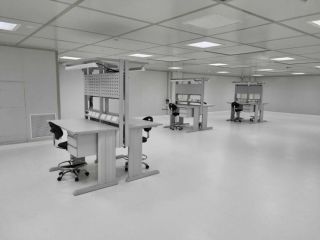Plastic parts manufacturing is a field that exists in a variety of industries around the world, but manufacturing for the medical industry is a field that requires significant specialist expertise. This knowledge and skill is required to meet the strict and specific requirements for sterilization and regulatory responsibility that are not usually required in other manufacturing industries.
In recent years, the field of medical devices has grown in significance and industry requirements become more rigorous to keep pace; requiring medical device manufacturers to produce plastic parts in Cleanrooms.
Why do medical devices require Cleanrooms?
Medical instrument parts are mainly tested for a high level of sterilization. The controlled environment of a Cleanroom can help ensure that dust, materials and other particles do not contaminate the plastic that is a significant part of medical devices.
For example, the medical device and diagnostics industry magazine reporting on the requirements of the US Food and Drug Administration (FDA), states that where environmental conditions may affect product quality, "the manufacturer shall establish and maintain procedures for adequate control of these environmental conditions." Production in Cleanrooms is based on this regulation, with Cleanrooms being classified in a number of different regulations relating to the permissible particle limitations and sterilization requirements. According to the Journal of Medical Equipment and Diagnosis, the International Organization for Standardization (ISO) classifies Cleanrooms according to the level of particle cleanliness per cubic meter, from grade 9 to grade 1.
At Zriha Medical we operate a at some CLASS 8 level.
In addition, we are certified to ISO 13485.
What is the ISO 13485 standard?
In the production of plastic parts in , it is required to comply with the certification regulations for Standard 13485. The standard constitutes a manufacturing standard designed to ensure strict quality policies. The standard requires plastic manufacturers to ensure that their systems have official regulations and addresses relating to the control of operations performed, such as internal audit procedures, non-compliance audits, corrective and preventive actions, process and design controls and record keeping. Although ISO 13485 is a voluntary standard, many OEMs require their suppliers, such as plastic parts manufacturers, to hold a certificate.

